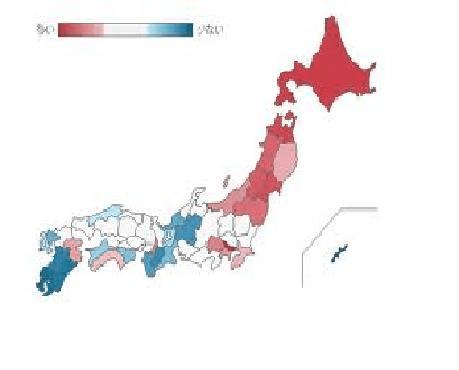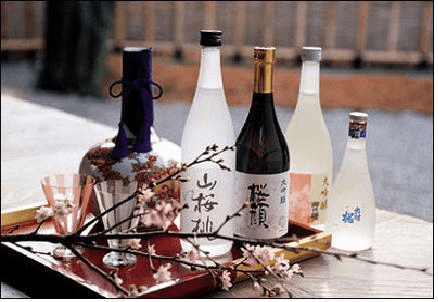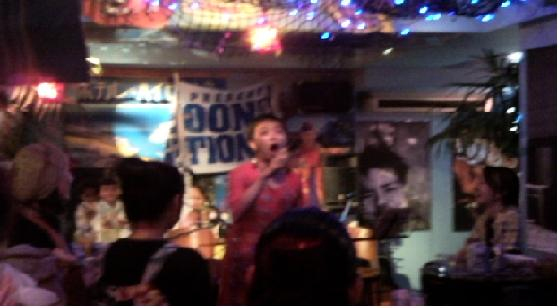by Rivan
It is a wet and humid night in Kochi city and many regulars enter the Okinawan bar where I work. They sit at the counter with a karaoke mic in one hand and an Awamori – on the rocks or mixed with water or coffee in the other hand. They are thoroughly enjoying themselves singing Okinawan songs and drinking Okinawan spirits and beer because while they are drinking and singing (even if the singing is a little off key), they have no worries. While a few customers are asking me questions about my life in Kochi, some are just socialising and talking about work, their spouses and life in general.
As another Saturday night falls in the city of Kochi, most homes are empty and people can be seen getting together in bars and izakayas (traditional Japanese bar) all over the city. Some come in large groups, some in smaller groups of 2 and 3 and some come alone hoping to find camaraderie. Everyone from students to teachers to homemakers to businessmen to retired people can be seen going to get a drink.
“Even if there is no cause for celebration, it’s just natural for friends and relatives to get together and have a couple of drinks after a hard days work,” claims Mr. Sadahiro, owner of a local Okinawan bar.
Kochi is a city known for its hard drinking population, high rate of divorce, most number of reported cases of domestic violence and one of the highest number of people living with HIV. But very few people even realize that there are many in Kochi with a drinking problem. In an informal survey of Kochi university’s Asakura campus, eight out of ten students admitted that they drink more than once a week. Out of these students, three are under the legal drinking age i.e. 20 years.
Traditional Japanese drinking culture is relatively tolerant of drinking even though in ages past, it was thought that women should only serve drinks and not drink themselves. Today that is no longer the case. In fact, Kochi’s women are known to be as strong, if not stronger than the men when it comes to drinking.
According to Mrs. Aoyama, “I can drink as much as my husband and sometimes I can drink him under the table.”
Japan and Kochi especially have many traditional drinks like Kochi’s jizake, Sake, Shochu, rice wine and some drinks imported from other prefectures like the Okinawan Awamori. Unfortunately, these traditional drinks are slowly but surely being phased out by beer.
An amazing fact about Japan is that it is the only country in the world that sells alcohol in vending machines. This undoubtedly contributes to a growing number of underage drinkers in Japan. As surveyed by Susumu Higuchi, Kenji Suzuki, Sachio Matsuda and Yoneatsu Osaki, “In 1996, approximately 186,000 machines were in operation throughout the country. However, due to voluntary regulation by the beverage alcohol industry and retailers, this number had dropped to 68,000 in 2003.” According to Mr. Higuchi, more and more Japanese junior high school and high school students are drinking alcohol in Japan and especially in Kochi.
The major sources of alcohol for these youngsters as surveyed by the above mentioned, are convenience stores, vending machines and their own homes. For example, Ms. Mayumi’s household consists of her younger daughter, her son in law, and 3 grandchildren. When Ms. Mayumi was younger, she used to work in an izakaya.
She explained, “My daughters were influenced by the drinking going on, in and around the house and started drinking at the age of 16 and 18 respectively.”
Recently, convenience stores have put forward methods by which they have managed to cut down on under age drinkers but as mentioned above, the evidence points elsewhere. In the study done by Higuchi & co., “The risk factors associated with this problem are lack of communication with parents and a higher susceptibility to peer pressure.”
Face flushing is an important part of drinking behavior. According to a study done by Hiroshi Suwaki and Hioshi Ohara, more than half of the people surveyed in the city of Kochi are non-flushers.
“People who were diagnosed with liver problems and smokers tend to be non-flushers,” they report. Coupled with the fact about non-flushers that they drink comparatively larger amounts than face flushers when consuming alcohol and that they usually drink more than 4 times a week, most people might like to be non-flushers if given a choice.
“Non-flushers also tend to drink more, ” say Suwaki and Ohara, “because of a habit known as banshaku (having drinks with dinner at home rather than going out to bars).” In addition, wives complaining about husbands’ drinking habits is nothing new, but unfortunately this is a leading cause of domestic violence. “The wives of the non-flushers showed a greater tendency to complain about the pressure on household economics because of their husbands’ drinking and to want their husbands to stop drinking.”
Again in the survey done by Mr. Higuchi & co., Japan has one of the highest levels of alcohol consumption per capita but in recent years has reached a plateau at about 6.5 liters a year. Compared to this, in a study done by the government of Japan in 2002, the alcohol consumption in Kochi is at 7.4 liters per person per year which is well above the national average.

The map shows shocking proof that even though Kochi is known for its hard drinking population, people in places like Hokkaido and the Tohoku region drink more than people in Kochi.
Not everything about drinking in Kochi is dangerous and leads to bad consequences. According to most guide books and Internet websites, there are over a 1000 decent places where one can relax and enjoy a cool beer or a warm Shochu depending on the weather. Drinking is such a big part of Kochi’s culture that according to Ms. Asami Yamamoto, “Instead of saying lets go out and have fun, I now say lets go and get a drink.” Ms. Yamamoto is from the nearby Okayama prefecture but after studying in Kochi university for one and a half years, she found a suprising change in her manner of speaking. The fact that she is only 20 years old and feels comfortable with getting a drink once in a while at a local bar shows that it is quite safe for drinking.
Drinking in Kochi is a social norm, not just for students and businessmen, but for the working class as well. It is considered a very important way, maybe the only way, to socialise in Kochi.
In fact, while talking to one Mr. Masahiro, he joked that, “there is a very strong religion in Kochi and that religion is alcohol.” (In Japanese, both words are pronounced shukyo which is a play on words.)
Drinking in Japan is not considered to be taboo or even unusual in any way. Especially in Kochi, drinking is considered a part of everyday life and something to be enjoyed no matter the occasion. When toasting Kochi, Mr. Sadahiro the proud owner of Hibiscus almost always proclaims, “If someone ever wants to relax and have a drink without undergoing any scrutiny, come to Kochi and have fun.”






Rivan, I’m not sure if your article makes me want to go out for a drink or give it up for life. I’m a non-flusher which probably means my liver has taken a bit of a beating, right?
Very informative though and some interesting statistics.
Gotta go, the vending machines shut down in 10 minutes. Kanpai!
LikeLike
Hi Rivan,
Just read your article and want to congratulate you on a job well done. I suppose if you work in a bar it is hard to not to smoke!
LikeLike
Dear Rivan,
You did really good job.
The graph and pictures is easy to understand.
LikeLike
Dear Rivan,
I’m so surprised of your article, because it was very enjoyable to read.
Also I could know a lot of things relating Kochi and Sake.
I enjoed so much, thank you.
Maho.
LikeLike
It is true only Kochi uni students say lets go for a drink. It is a good way to get to know each other.
LikeLike
This is a very interesting article, Rivan!
Let’s go out for a drink!
LikeLike
I am glad that you have done your homework, Rivan. Informative and well done.
How does this Kochi compare with that other Kochi you have not disclosed yet, the one in India?
LikeLike
Hi Rivan
Enjoy your baito at Okinawan Bar? I remember you told me about this bar before but this article is more informative.
The view of your point , as a foreigner , slightly different from Japanese. Either me.I guess in your culture is same with mine, we have no alcohol culture. We drink but not as Japanese do . After done a lot of pretty hard job , they will go for couple of drink , especially beer. And I call it OTSUKARE beer.
Without a doubt, I like drinking after I came to Japan, or should I say Kochi. It is good to have Otsukare beer after you done a good job . This is Japanese culture and I like it as well
Lets have couple of drink at Okinawan bar.
LikeLike
It is said that people in Kochi consume beer more than any other prefecture. I was born in Kochi and grew up. So I’ve got along with all kinds of alcohol, especialy beer, for a long time. (Sometimes I’m being killed) Also, everyone born in Kochi is the same, I guess.
The thinking of drinking is different, and it depends on his or her background. So no one can deny the person who don’t drink, but I believe beer will save us.
It was fun to read as a person in Kochi. Thank you.
LikeLike